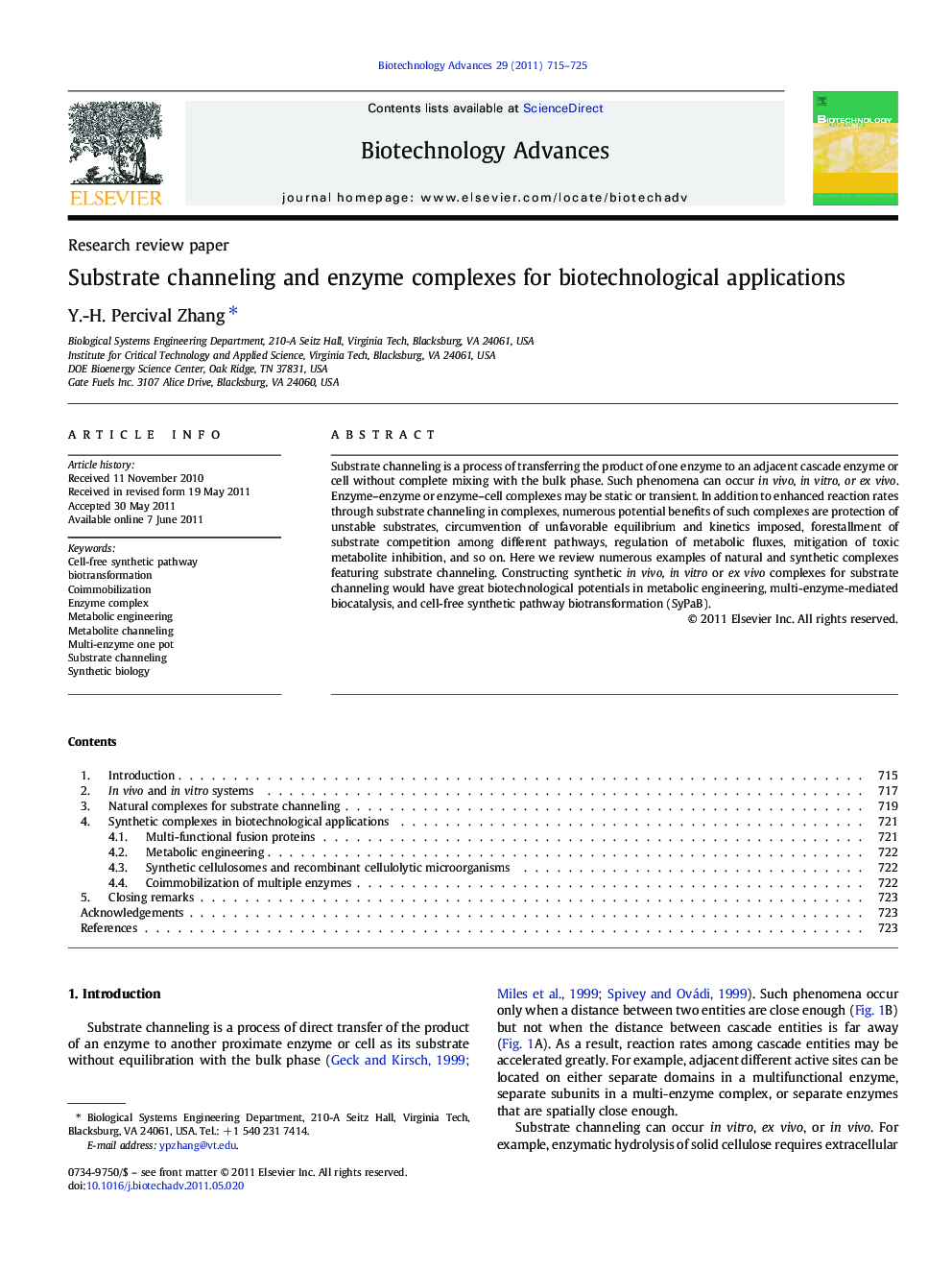| Article ID | Journal | Published Year | Pages | File Type |
|---|---|---|---|---|
| 10231662 | Biotechnology Advances | 2011 | 11 Pages |
Abstract
Substrate channeling is a process of transferring the product of one enzyme to an adjacent cascade enzyme or cell without complete mixing with the bulk phase. Such phenomena can occur in vivo, in vitro, or ex vivo. Enzyme-enzyme or enzyme-cell complexes may be static or transient. In addition to enhanced reaction rates through substrate channeling in complexes, numerous potential benefits of such complexes are protection of unstable substrates, circumvention of unfavorable equilibrium and kinetics imposed, forestallment of substrate competition among different pathways, regulation of metabolic fluxes, mitigation of toxic metabolite inhibition, and so on. Here we review numerous examples of natural and synthetic complexes featuring substrate channeling. Constructing synthetic in vivo, in vitro or ex vivo complexes for substrate channeling would have great biotechnological potentials in metabolic engineering, multi-enzyme-mediated biocatalysis, and cell-free synthetic pathway biotransformation (SyPaB).
Keywords
Related Topics
Physical Sciences and Engineering
Chemical Engineering
Bioengineering
Authors
Y.-H. Percival Zhang,
